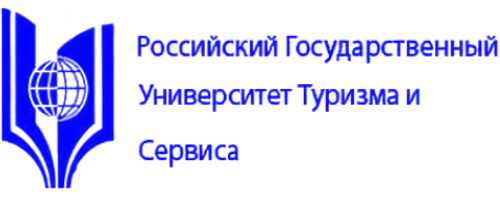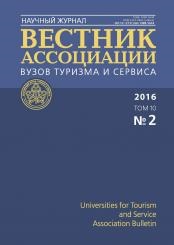Russian Federation
In connection with carrying out in 2018 of the activities of the world football Championship in several regions of the Russian Federation there is a perceived need for additional training of a large number of guides, guides and guides-interpreters. In the article based on modern scientific approaches and many years of practical experience, the authors propose a new structure of the course content quality of training of specialists of excursion business. The article discusses important differences in the training of the needed staff, on the one hand, in cities with experience of international competitions and Championships – Olympic games and Universiades, and, on the other hand, in cities where tourism business is seasonal e, which include the Volgograd. The article presents brief analysis of the problems and difficulties encountered in the preparation and subsequent work of guides and guides-interpreters of the Volgograd region. Special attention is paid to the insufficient competence of tour guides in the field of practice of the excursion. In this context, the article provides an overview of tour guides requirements, contained in the normative legal acts on the basis of which there is competence of the guide – the guidelines of the tour. The authors compare traditional (found in the literature) creative interpretations of the concept of «methodology of the tour». As a significant component of the methodology for the conduct of excursions are the types of special methodical knowledge of the guide and guide-interpreter, namely: psychological, pedagogical, vocational and applied, linguistic knowledge and the practical skills: communicative, organizational and compensatory. The article specifies requirements for teaching staff, conducting quality training courses guides and guide-interpreters, and procedural characteristics of education.
competence, guide, guide-interpreter, methods of conducting excursions
1. Emel´yanov B.V. Ekskursovedenie. M.: Sov. sport, 2007. [Elektronnyy resurs]. URL: http://tourlib.net/books_tourism/ekskurs.htm (data obrashcheniya: 12.04.2016).
2. Verbitskiy A.A. Aktivnoe obuchenie v vysshey shkole: kontekstnyy podkhod. M.: Vysshaya shkola, 1991.
3. Assuirova L.V. i dr. Pedagogicheskaya ritorika: uchebnik dlya stud. uchrezhdeniy vyssh. prof. obr-ya. M.: Izd. tsentr «Akademiya», 2013.
4. Feyginov S.R. Pedagogicheskaya dramatizatsiya obrazovatel´nogo prostranstva podrostka: Avtoref. … d-ra ped. nauk. Yaroslavl´, 2006.
5. Khodyakova N.V. Situatsionno-sredovoy podkhod k proektirovaniyu lichnostno razvivayushchego obrazovaniya: metodologicheskie predposylki i kontseptsiya. Volgograd: Peremena, 2012.
6. Khutorskoy A.V. Didakticheskaya evristika: Teoriya i tekhnologiya kreativnogo obucheniya. M.: MGU, 2003.
7. Manuylov Yu.S. Sredovoy podkhod v vospitanii: Dis. …d-ra ped. nauk. M., 1997.
8. Schmidinger H. & others. Excursions in school - past and present from Swedish and anglosaxon perspectives. European Journal of Geography. Volume 5. Number 4:87-101, 2014. P. 87-101.
9. Payne P.G., Wattchow B. Phenomenological deconstruction, slow pedagogy and the corporeal turn in wild environmental/ outdoor education. Canadian Journal of Environmental Education. Number 14, 2009. P. 15-32.






